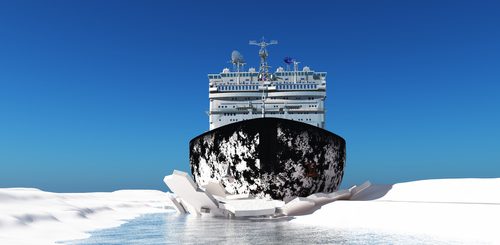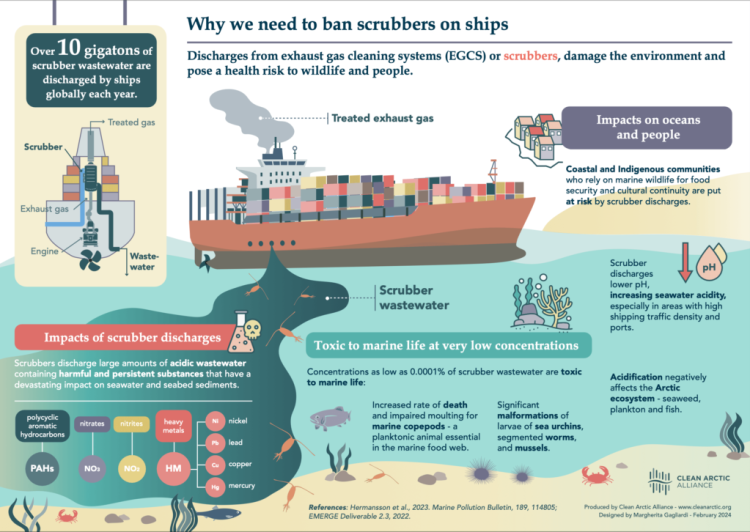A new report by Pacific Environment presents the argument for why the International Maritime Organization (IMO) should take immediate action to curb shipping’s black carbon emissions from the Arctic.
On its latest report titled “On thin ice: Why shipping’s black carbon emissions demands urgent action”, Pacific Environment explored how the expansion of Arctic shipping is causing an increase in the release of black carbon into the air, which then settles on snow and ice, accelerating dangerous melting.
Black carbon’s growing Arctic threat
Unchecked black carbon emissions from Arctic shipping represent a clear and present danger to the integrity of the Arctic cryosphere, global climate stability and the health and wellbeing of Arctic Indigenous and coastal communities. By mandating a swift transition to polar fuels – existing fuels with lower black carbon emissions which are suitable for use in the Arctic – the IMO can enact a high-impact policy that achieves immediate benefits.
Action ahead of PPR 13 – the IMO’s technical pollution prevention and response meeting – in early 2026 will allow Member States to agree on action that will help slow Arctic warming and uphold the IMO’s mandate to protect the marine environment and adjacent communities.
Arctic traffic surges 108%
According to the Protection of the Arctic Marine Environment’s (PAME) Arctic Shipping Status Report, the number of individual vessels entering the Arctic increased from 1,298 in 2013 to 1,781 in 2024 — a 37% rise — while the cumulative distance traveled within these polar waters rose by 108%, from 6.51 million to 12.7 million nautical miles.
Commercial fishing vessels made up the largest share of vessel mileage at 34%. Bulk carriers, icebreakers and research ships made up significant shares.
Black carbon remains unregulated
From 2007 to 2010, the IMO reviewed black carbon as a powerful climate forcer in the Arctic. Switching from residual to distillate fuels was debated before the 2008 MARPOL amendments and accepted in principle but not adopted due to practical challenges.
Instead, the IMO focused on regulating sulfur content to reduce SOx particulate matter. In 2011, the IMO’s Marine Environment Protection Committee (MEPC 62) launched a work program to address black carbon from Arctic shipping, aiming to define, measure, and find ways to reduce ship black carbon.
In 2013, a universally accepted definition of black carbon was agreed upon, followed by three years of developing measurement methods. Industry input highlighted engine type, size, load, and maintenance as key factors influencing emissions.
A 2013 Canadian-sponsored study identified cleaner fuels as a major way to reduce black carbon across the board. This led to a 2017 list of 41 potential abatement measures. Subsequent MEPC Pollution Prevention and Response Sub-Committee meetings further explored abatement options, test results, and emission differences between residual and distillate fuels.
Why is Arctic maritime shipping’s black carbon still an issue?
According to Pacific Environment, attempts to regulate black carbon emissions, particularly from the shipping industry, face challenges for several reasons including:
- Oil industry juggernaut
- Complexity of the shipping industry
- Costs
- Scientific and technical challenges:
- Focus on other emissions
- Lack of awareness
- Political will
Despite technical assessments and calls for voluntary measures at the IMO, black carbon emissions from Arctic shipping continue to grow unchecked. Without mandatory requirements, markets lack the certainty needed to shift fleet operations toward lower black carbon options. We call on the IMO to respond to this Arctic crisis and urgently address the growing health and human impacts of black carbon.
…said Kay Brown, Arctic policy director, Pacific Environment.




